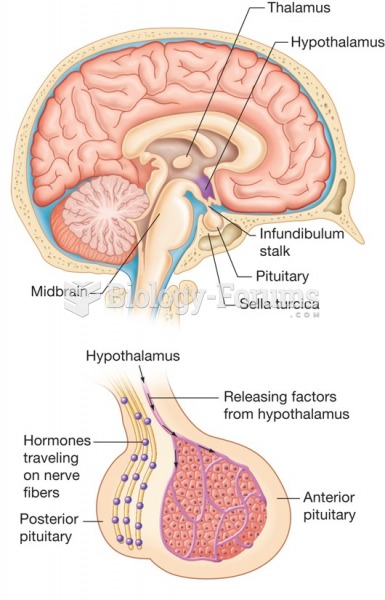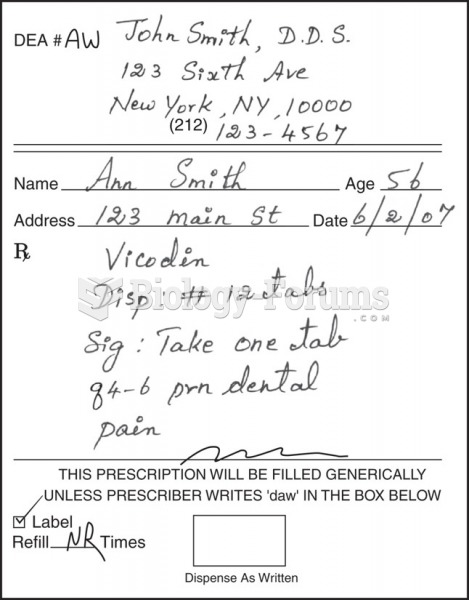|
|
|
Though methadone is often used to treat dependency on other opioids, the drug itself can be abused. Crushing or snorting methadone can achieve the opiate "rush" desired by addicts. Improper use such as these can lead to a dangerous dependency on methadone. This drug now accounts for nearly one-third of opioid-related deaths.
Cytomegalovirus affects nearly the same amount of newborns every year as Down syndrome.
People with high total cholesterol have about two times the risk for heart disease as people with ideal levels.
Blood in the urine can be a sign of a kidney stone, glomerulonephritis, or other kidney problems.
Most fungi that pathogenically affect humans live in soil. If a person is not healthy, has an open wound, or is immunocompromised, a fungal infection can be very aggressive.







